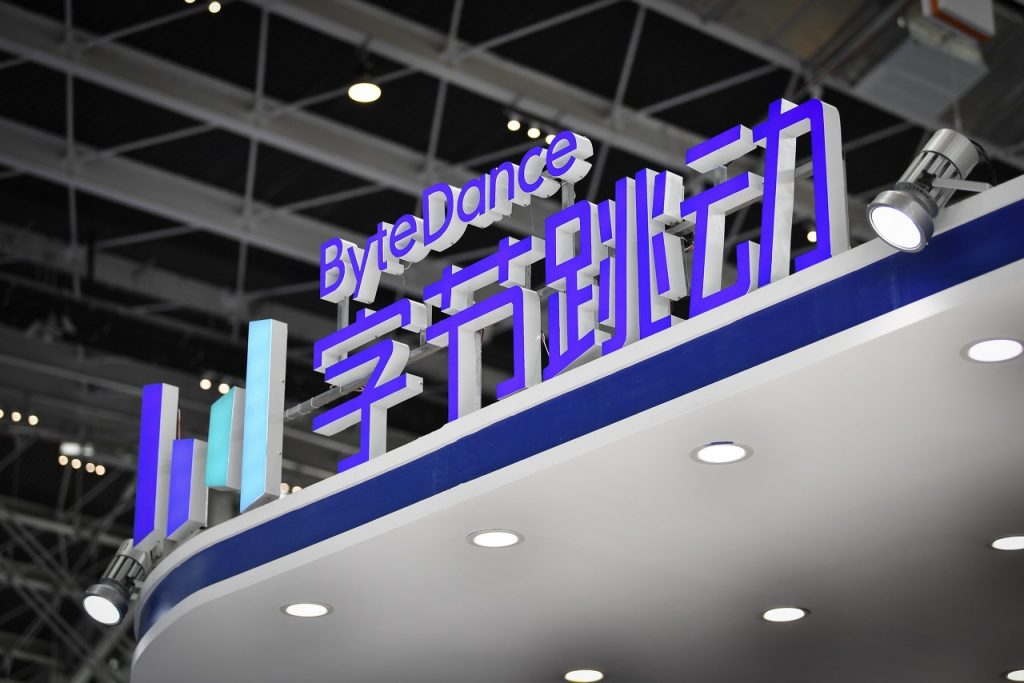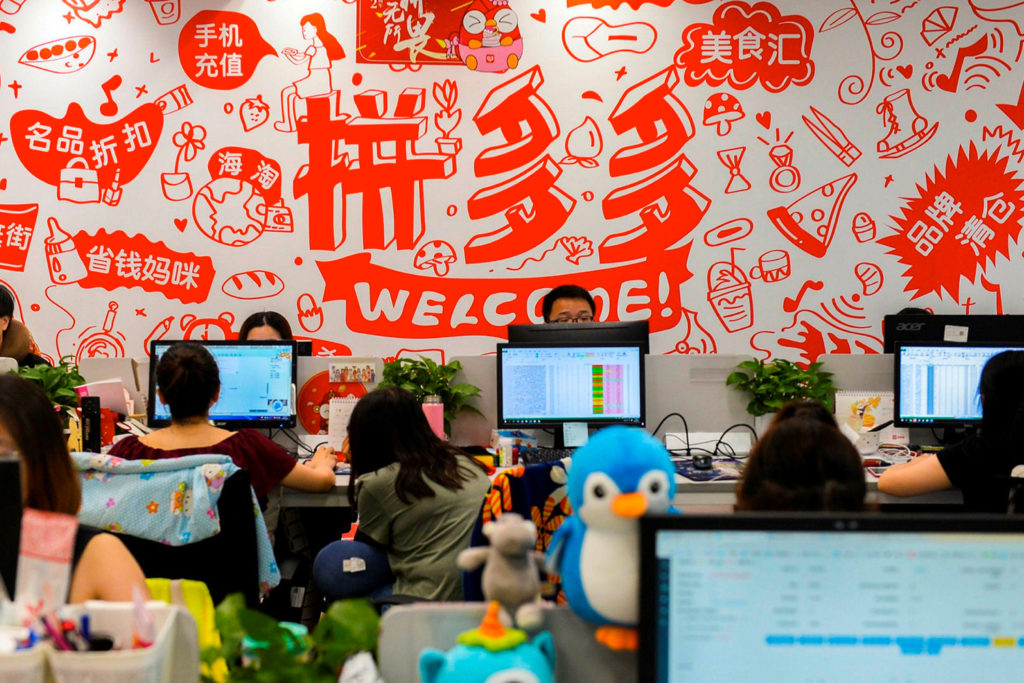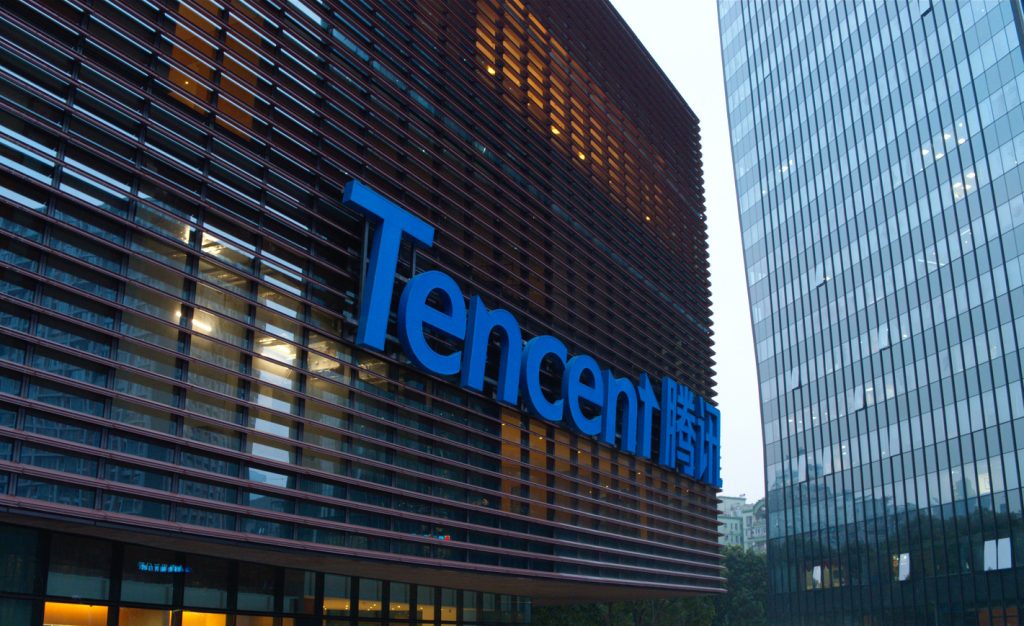On a chilly night in late February, 24-year-old tech worker Emma decided to kill herself.
Scared of pain, she chose to drown herself in a river in the city of Hangzhou. The freezing water made her shiver all over, but she continued slowly walking forward. Then, she thought of her disabled father, who depends on her financial support every month.
“Could my farmer parents survive if they lost their only daughter?” Emma asked herself. Fortunately, while she was wandering indecisively in the shallows, having left a despondent note on social media, her boyfriend came to find her and pulled her ashore.
For more than a year, Emma had been agonizing about money: She had been directed to pay compensation—almost three times her annual income—to her former employer, the Chinese bargain shopping app Pinduoduo.
Pinduoduo argued Emma had breached a noncompete agreement by joining the affiliate of a rival e-commerce company. Emma maintains that her current job has no overlap with what she was doing at her former employer. At Pinduoduo, she was dealing with food vendors for the domestic market; now she deals with toy manufacturers and targets overseas markets.
Pinduoduo is a formidable force in China’s e-commerce market, and it was not willing to overlook what it saw as a breach of contract by one of its former employees. Since its founding in 2015, the company’s aggressive tactics and strict corporate culture have helped it break into the top ranks of China’s internet giants: Its parent, PDD Holdings, briefly surpassed Alibaba Group Holding in market capitalization and became the most valuable Chinese company listed in the US last year.

As competition increases, so does pressure on employees. Emma, who asked that her real name not be used, is one of an increasing number of Chinese tech workers facing legal action from former employers looking to enforce strict noncompete clauses. These agreements are common in other countries and were initially designed to protect a company’s trade secrets by discouraging senior executives from leaving for rivals. However, they have become pervasive in China and are evolving into powerful tools for companies like Pinduoduo, Tencent, ByteDance, Baidu, EV battery giant CATL, and others to prevent even junior workers from jumping to rival employers.
“In China, companies have been exploiting noncompete agreements by significantly expanding their reach, leading to their misuse,” said Shen Jianfeng, director of the Research Center for Labor Law and Social Security Law at the Central University of Finance and Economics in Beijing.
A typical noncompete agreement stipulates that an employee will not join a rival for up to a certain length of time after leaving their previous employer. Breaking such an agreement risks legal action, which can leave the employee facing a massive financial penalty or having to remain unemployed for up to two years, with only a small stipend from their former employer. After such a long gap, some employees find it all but impossible to return to work in their chosen field.
“While it may appear to be a mutual agreement, refusing to sign such agreements may result in job loss,” Shen said, “so there is a significant power imbalance between employers and employees. A lot of employees may not comprehend the potential consequences associated with such agreements when they sign them.”

Some Chinese companies are also resorting to measures such as surveillance to gather evidence on former employees, a controversial practice that is traumatizing workers but is often accepted as legitimate evidence by China’s legal system.
Through analyzing hundreds of Chinese court documents and interviews with a dozen tech workers and numerous legal experts, Nikkei Asia has obtained exclusive insight into how China’s biggest tech companies are using noncompete agreements to cling onto workers at all costs, which experts say is not only a violation of human rights but also a threat to the country’s innovation as the US-China tech war deepens.
Stalking and secret filming
Emma joined Pinduoduo’s grocery unit, known for its grueling work hours, in the southern city of Nanning after graduating from a small college in 2022. Facing more than 12 hours of work a day without any days off, she says, Emma resigned after around eight months, feeling on the verge of physical and mental collapse. She had lost more than five kilograms and was diagnosed with hyperthyroidism.
On her first day at Pinduoduo, Emma had been asked to sign a “confidentiality, noncompete and intellectual ownership agreement,” and upon resignation was asked to sign a “notice letter” that would restrict her from working for rival companies, or any affiliates in which those companies have a stake of more than 20%, for the next nine months. During that time, Pinduoduo would pay her RMB 2,400 (USD 330), or 30% of her previous basic salary, each month. If she broke the agreement, Emma would have to pay the company 24 months’ worth of salary and return the compensation she had received.

She signed both documents with little hesitation. Secure in her belief that Pinduoduo wouldn’t bother chasing her as she was so junior and “didn’t hold any trade secrets,” she did what many young tech professionals do and started to look for a new job.
In October 2023, Emma received a labor arbitration claim from Pinduoduo, requesting her to pay RMB 280,000 as compensation. The evidence Pinduoduo presented to the arbitrator was a series of secretly filmed videos of Emma leaving her residence and entering her new workplace.
It was only when she saw the videos that Emma realized she had been followed to and from her new job for weeks by a portly, middle-aged man, discretely recording her from a distance, whose reflection was clearly visible in some footage. In the following days, Emma said, she had nightmares of being stalked. “I am so scared,” she wrote on the social media site Weibo. “I don’t know if I am being stalked again. I keep looking behind me whenever I walk down the street now.”
In a statement to Nikkei, a Pinduoduo spokesperson said the company has never “engaged in illegal surveillance of either current or former employees.” The company “respects personal privacy, and Chinese law has strict regulations on personal privacy.”
Emma is not the only person in China who has been subjected to surveillance by a former employer.
In the past decade or so, as competition among Chinese tech companies has intensified, the number of publicly available lawsuits over noncompete agreements has skyrocketed. In 2020, the number of court rulings related to noncompete agreements was four times higher than in 2015. Many tech companies expanded at their fastest clips during those years.
Since Beijing began cracking down on the tech sector in late 2020, leading tech companies such as Tencent and Alibaba started to lay off staff to save costs, though PDD Holdings kept expanding as its Temu subsidiary grew in overseas markets.
The lawsuit numbers released by China’s Supreme Court might be the tip of the iceberg, as the system does not publicize the results of arbitration, a method for resolving disputes in private without going to court. The figures also exclude cases labeled by the companies as “sensitive.”
Pinduoduo, Alibaba, Tencent, ByteDance, JD.com, and Baidu have all monitored and videotaped former employees from the moment they left their residential compounds until they reached their new workplaces, according to hundreds of court documents viewed by Nikkei.
This surveillance and recording typically continued for 7–14 days and was presented in court as evidence. Despite employees’ and their lawyers’ objecting to the legality of the footage, arbitrators and judges accepted it as evidence in most of the cases reviewed by Nikkei.
Legal scholars and lawyers not involved in these cases told Nikkei it would be difficult for employees to claim protection under privacy or data protection laws in China, as companies can argue that the footage was taken in public places.
Alibaba, JD, Baidu, and ByteDance all declined Nikkei’s requests for comment on this article. Tencent, which did not comment on its methods of gathering evidence, said the company does use noncompete agreements, “but these are used sparingly and only for the purpose of protecting our most critical [intellectual property].”
Cat and mouse
Companies can go to creative and sometimes extreme lengths to collect evidence of noncompete breaches, a sign of how seriously they take the issue of talent retention.
In some cases, current employees have been sent to apply for a job at a rival company to gather proof that a former colleague is employed there. Other practices have included sending deliveries or flower bouquets to rival companies and requesting a specific recipient to sign for them, gathering body temperature records collected by former employees’ new workplaces during the Covid-19 pandemic, or obtaining an employee’s social security record from their new company, which is possible with a court’s approval.
Employees looking to counter such surveillance often play cat and mouse with former employers. Practices such as wearing masks and sunglasses, assuming pseudonyms at their new company, or orchestrating job contracts with outside agencies used to camouflage their real employer, are common, industry insiders told Nikkei.
In 2018, TikTok parent ByteDance, for example, started to aggressively recruit from rivals, particularly Baidu and Tencent, as its business extended rapidly to include gaming, education, and e-commerce. Its workforce expanded from around 20,000 employees in 2018 to nearly 100,000 by 2020. Court documents show that, in several instances, former Tencent employees would sign contracts with human resource companies but would actually show up at ByteDance’s office, using official ByteDance office passes on a daily basis. ByteDance declined to comment on this.
When Tencent initiated legal action against the exodus of employees to ByteDance, local courts mostly ruled in the former company’s favor. The company presented surveillance footage in most of its cases, according to Nikkei’s analysis of court documents.

While many former employees actively cover their tracks when seeking new work, they are still at a distinct disadvantage when confronted with the huge resources of some of China’s wealthiest and most powerful companies.
“There are specialists dedicated to noncompete matters in leading tech companies,” said Shen, the Beijing legal expert. “These specialists consistently study policies and possess a comprehensive understanding of the legal boundaries within the court system. In fact, their knowledge of these boundaries may surpass that of judges who only encounter such cases occasionally.”
Given the low cost of signing a noncompete agreement, many companies are now expanding them to every employee, even office cleaners in one extreme case, according to court documents.
Yang Haonan, an expert on labor and employment law at Guangdong University of Foreign Studies in Guangzhou, said it is illegal for companies to indiscriminately require every employee to sign a noncompete agreement.
The scope of noncompete agreements under China’s labor contract law is “ambiguous,” said Yang, but “that does not mean there are no boundaries.” He stressed that such agreements are meant to protect “the legitimate business interests of the employers [and] must not be misused to unduly restrain general competition.”
Pushing back
Some workers are starting to speak up.
In early February, 11 former Pinduoduo employees took to social media to expose what they say is the company’s misuse of noncompete agreements. In a public letter posted on Weibo, the Chinese equivalent of X, the workers, with an average age of 30, said, “Pinduoduo’s abuse of noncompete agreements has seriously impeded the employment rights and livelihood of workers.”
The workers say they refused to pay any compensation to the company, as they were neither senior management nor senior technical staff and argue that because Pinduoduo enforces a strict firewall system between different departments, there was no way for them to obtain trade secrets.
While all new hires are required to sign noncompete agreements, Pinduoduo said in a statement to Nikkei that “only a very small number” of departing junior staff are subject to noncompete agreements when they leave. From September 2023 to February 2024, the number of former employees the company sued for noncompete violations accounted for “less than 2% of the total number of employees who left the company during the same period,” according to the statement.
“Junior staff form the backbone of the workforce at Pinduoduo. These individuals often hold unique positions with access to valuable corporate assets, such as special pricing contract information or special business logic code,” the Pinduoduo spokesperson said.
At least three of the 11 former workers who posted on Weibo told Nikkei they were diagnosed with serious depression after legal proceedings were launched against them. One algorithm engineer said he had tried to commit suicide and was thinking about jumping off the roof of Pinduoduo’s home office in Shanghai because he is being asked to pay the company RMB 4.5 million after working there for four and a half years.
One of those former employees is Samuel, who said he was a middle-level manager at Pinduoduo. When he joined the company in 2018, he said, he was asked to sign a noncompete agreement that included a list of rival companies. In 2019, Pinduoduo asked him to sign a supplementary noncompete agreement with an updated list of rivals and an additional clause: If Samuel violated the agreement, he would have to return all of his exercised restricted stock units (RSU)—originally part of his annual salary package—and would be barred from exercising the rest.
“I was forced to sign the supplementary agreement. If I didn’t sign, I would have had to resign,” Samuel said.
After leaving Pinduoduo in 2021, Samuel sold 50% of his RSUs worth over RMB 10 million. He used the money to buy an apartment and start two companies, one selling health supplements and the other engaging in live e-commerce.
Pinduoduo sued him and asked him to pay back what he received from the share sale, saying it had evidence he joined an affiliate of delivery platform Meituan. Samuel argued that he only asked the company to pay social security contributions for him so that he would be eligible to buy an apartment in Shanghai.

Pinduoduo also argued the two companies Samuel founded overlapped with Pinduoduo’s business scope, which they considered further evidence of a breach of the noncompete agreement. Chinese companies tend to describe the scope of their business activities as broadly as possible in corporate registrations. Pinduoduo and its affiliates are involved in more than 50 business categories, according to their registrations, covering almost every aspect of daily life.
Samuel said he would be unable to pay what the company is demanding even if he sold his apartment because its price has plunged by half amid China’s property crisis.
The price of speaking up is also rising. After nonstop posts on social media, some of the 11 former Pinduoduo employees say they have been taken to police stations for questioning or received warnings from police.
“There is significant evidence indicating that [some of the former employees] deliberately produced false information with the intent to mislead others,” a Pinduoduo spokesperson said of the 11 workers. “Such actions bring into question the true motivations behind these allegations.” The company did not comment on whether it had anything to do with the police action.
Legal gray zones
On paper, Chinese law restricts noncompete agreements to “senior management roles, senior technical roles, and those with confidentiality obligations,” but the law does not explicitly define what constitutes senior technical personnel or personnel with confidentiality obligations. As a result, many companies use contractual agreements with employees to determine who has such obligations.
A Shanghai-based lawyer specializing in noncompete agreements who asked not to be named told Nikkei that, while such agreements are common at Fortune Global 500 companies, the enforcement of them in China is more far-reaching and companies hold more sway.
“Even if a former employee doesn’t possess highly confidential skills, the company has the discretion to impose noncompetes if they consider it necessary,” the lawyer said.
In the 2000s and with a booming economy, China enacted a flurry of legislation aimed at protecting workers’ rights. This was partly an effort to maintain social stability—one of the top priorities of the Chinese Communist Party—by making it difficult for businesses to fire unfit workers. The moves encountered strong objections from companies and even some legal scholars who argued that the laws placed a heavy burden on businesses.
But as economic growth started to slow after 2010, Beijing began to prioritize creating a more favorable environment for businesses, which meant less emphasis on workers’ rights.
From companies’ point of view, given the complexity of the Labor Contract Law, noncompete agreements were a useful tool to reduce disputes when employees left, such as claims over unpaid overtime or denied vacation, Shen, the lawyer, said.
And when it came to arguing breaches in front of judges, rulings tended to favor companies.
In most cases reviewed by Nikkei, companies have prevailed in court without having to present evidence of the exact trade secrets the employees allegedly held and what losses the company suffered after they left.
For example, Tesla supplier CATL, the world’s largest EV battery maker, sued 33-year-old former sales representative Yang Yun for RMB 1 million in 2020. Yang had worked at the company for less than two years, and his monthly salary was just RMB 9,000.
After leaving, Yang joined an affiliate of a company in clean energy, a sector covered by his noncompete agreement with CATL. The court ruled in the battery maker’s favor, even though the company did not provide evidence requested by Yang of what trade secret he obtained and what losses CATL suffered from his resignation. CATL declined Nikkei’s request for comment.
The same court in Fujian province, where CATL is headquartered, ruled in CATL’s favor in a dozen similar cases, and all appeals by former employees have failed.
While companies often prevail, there are exceptions.
In a 2020 verdict in favor of a former project manager from a consulting firm, a Shenzhen court said an overly broad noncompete agreement would “excessively deprive workers of their job opportunities.” It should also be examined, the court said, whether the employee really had access to and acquired trade secrets, and whether the employee was using those secrets in their new position and causing financial losses to the original company.
But such wins are rare, and with China’s tech rivalry with the US heating up, experts worry that a constrained workforce will stifle innovation in Asia’s biggest economy.
In the US, the Federal Trade Commission, which enforces antitrust law, is expected to vote on its sweeping proposal to ban noncompete agreements this month. In the case of a yes vote, the ban would go into effect soon after.
Some states already prohibit noncompete clauses. In California’s case, its ban is often credited for Silicon Valley’s success.
“Noncompetes have a clear impact on workforce mobility and can also affect China’s core technological competitiveness,” Shen said. “When individuals are restricted from pursuing their intended activities, their full potential cannot be fully utilized. This not only leads to personal losses but also has adverse consequences for industrial development.”
This article first appeared on Nikkei Asia. It has been republished here as part of 36Kr’s ongoing partnership with Nikkei.
